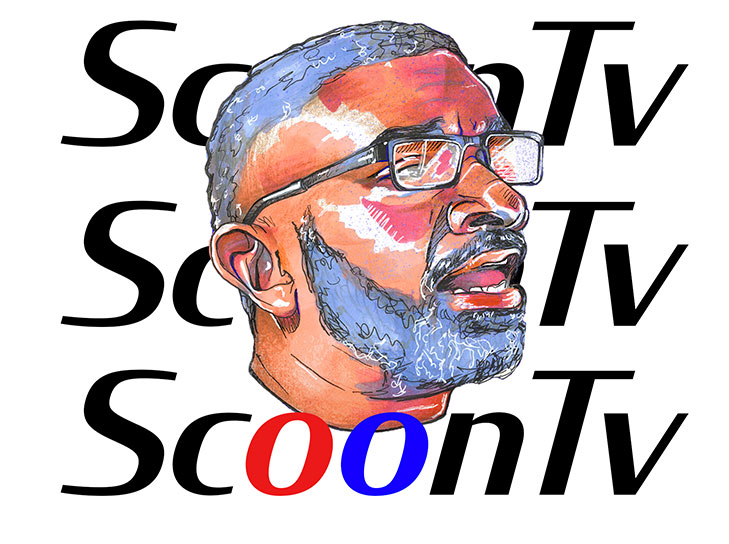By Nicola Stoev
Editor’s note: The opinions expressed here are those of the authors. View more opinion on ScoonTV.
Recently, the battle tanks promised to Ukraine by the West have been discussed all over mainstream media, but their turning up should bring into mind a disappointing confusion. That’s because of the modest numbers actually being delivered (e.g., around 100 new battling machines) from different countries. The few battle tanks arriving to Ukraine will scarcely be effective for defense purposes when they’re going to be supplied in several separate shipments, the first of which is envisaged in 3-4 months and the last one hopefully in a year.
In those circumstances, how will it be possible for Ukraine to organize its counter offensives with modern battle tanks if Russia surpasses the Ukrainian army with artillery two-to-one? Besides, every normal person also asks himself why the USA and the EU having a cumulative GDP 20 times bigger than Russia are struggling to supply some 100 new battle tanks to Ukraine within 12 months, if Russia can manufacture or repair about 200 – 250 machines for the same months (Ukraine’s Defense Express magazine report. 01/05/2023). What about if the West were standing up against the Chinese production capacities instead of the Russian ones? And is the situation with ammunition deliveries to the Ukrainian army the same as with the tanks?
Usually any turning up of bitter news touches some gloomy memories. In the cases with the battle tanks and the ammunition, the memories doubtlessly refer to the West giving in to tyrannical regimes in the last 10-15 years. Nine such memories include:
- Georgia struggling with NATO’s integration processes since 2008;
- Ukraine losing Crimea in 2014;
- The US failing to transform Afghanistan and withdrawing its troops from there;
- North Korea becoming a nuclear power;
- China gaining economic and political vantages in Africa;
- Arab countries cooling to the West, thus diminishing its influence on petrol pricing while the West did little in Syria;
- China overtaking the EU as the world’s second-largest economy;
- Russia occupying nearly 1/5 of the Ukrainian territory in 2022;
- The lack of progress made in having Sweden and Finland join NATO.
The West needs a distinct resolve and a clear strategy for sustainable handling of geopolitics to turn the corner. The resolve demonstration is a competitive act (i.e., it is costly stuff) and it should start from the delivery of sufficient support to Ukraine to liberate its occupied territories still in 2023. The immobilized Russian assets (more than $1 trillion) could offset financially any weapon deliveries in the future. It would not be a win for the West if the war drags beyond 2023 and Putin burdens the global economy further.
Ukraine should also be accepted in NATO before entering the EU. It is equally valid for Georgia. Otherwise, who will guarantee their national security? Without this guarantee, it will be impossible for both countries to attract reliable and sufficient private investments. If so, why should they apply for EU membership at all?
A concern about Russian nuclear potential cannot excuse any fear coming from the Ukrainian and Georgian entries in NATO. The Kremlin will reap nothing of a nuclear conflict, and Mr. Putin would not commit a simple suicide. He is more interested in influencing Russian neighboring states than the West. Should that allow him to limit democracy by means of bloodshed? Ukraine would not have to defend itself if the war would not be escalated, especially when it has fewer military resources than Russia. Therefore, the war must escalate if the global geopolitical order propped on the state-of-the-law principles should be preserved by military operations. Only Mr. Putin can change the escalation direction or drop it off.
The postwar geopolitical strategy of the West has to be centered on massive domestic and international investments in sectors like sustainable energy production, circular economy building, arms manufacturing, and redesigning global logistic chains. The economically based approach should appeal to Eastern Europe and Africa, where new business is needed and is important for Western interests. Supporting business incubators in the same countries could be an applicable strategic geopolitical tool. Another one might be the encouragement of a closer economic and military cooperation between Poland and Ukraine within the EU. Support for green re-industrialization in Eastern Europe and industrializing African exports seem similarly reasonable tools.
The OECD estimates that the world economy in 2023 will shrink by $2.8 trillion as opposed to 2021. The protracted delivery of 100 new battle tanks and ammunition to Ukraine will not solve this problem. A stronger backing is the geopolitical impotence’s thriftiest medicine. Afterwards, the US and the EU can come together to build back Ukraine.
Subscribe to get early access to podcasts, events, and more!






